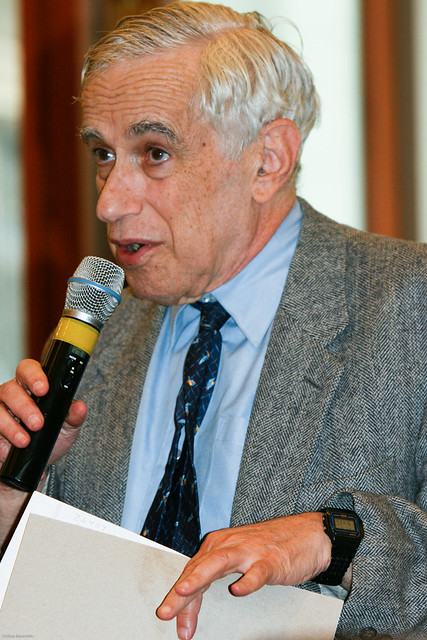By Kristina Davie
With the government’s renewal of abstinence-focused education programs in schools, readily available and unbiased information regarding healthy sexuality might be in short supply for teens. This legislation allocates $50 million to schools over the next five years that adopt this federally-approved curriculum. However, many have found this renewal of funding unwarranted, pointing out that no conclusive results showing this education’s value have been found. These evidence-based groups fear this funding might even encourage schools to intentionally mislead or omit information about sex. However, failing to address this topic simply disregards students that are sexually when they are the ones who need that information the most.
However, the gaps in sex knowledge don’t stop there for young Americans between the ages of 18 and 29. Although most of these young adults agree that pregnancy should be planned, a study done by the National Campaign to Prevent Teen and Unplanned Pregnancy found about half fail to use contraceptives regularly. Opponents of this abstinence-focused education point towards the misconceptions that might be purposely pushed on teens for these disturbing trends.
Fearing that open discussion of contraception will validate premarital sex, schools instead choose not to acknowledge these products or their concerns. Unfortunately, without discussing these methods of pregnancy prevention, teens also never learn about their proper use or limitations. Oral contraceptives, the most popular method of birth control today, is an especially important topic teens need to learn about to ensure their safety.
As a result of this refusal to discuss these products in school, teens might assume oral contraceptives actually prevent the spread of disease, as well as pregnancy. Unfortunately, heavy marketing by pharmaceutical manufacturers might lead to this misunderstanding regarding their products. Bayer HealthCare, maker of some of the most popular oral contraceptives, was even cited by the FDA for misleading advertising about their product. Finding the claims that their products act as treatments for several health conditions unproven, the FDA asked the manufacturer to remove the advertisements. However, the damage might have already been done.
When teens and young adults don’t have access to factual information about these products, they also fail to receive vital information about the direct health risks that accompany their use. One recent Yaz lawsuit involves a woman who developed blood clots in her lungs after taking these pills. Other serious side effects of these drugs include cardiovascular risks like heart attack, stroke and pulmonary embolism.
The CDC calls recent sexually transmitted disease trends “a major public health challenge.” The CDC estimates that 19 million new sexually transmitted disease infections occur each year. However, schools continually fail to prepare teens for the risks they face. Worse still, schools might actually contribute to these disturbing trends by aiding in misconceptions regarding sexual activity. While undeniably true that total abstinence is the only way to ensure complete protection against sexually transmitted disease and unwanted pregnancy, it is incredibly naive to believe all young adults will follow this advice. Our government and schools underestimate the effect increasing sexuality in the media has on young adults. In addition, the hormonal surge accompanying adolescence, in addition to peer pressure, makes it likely teens will begin experimenting with physical intimacy, especially if it has the added allure of being a forbidden act. Until our social institutions realize that reckless sexuality is a serious threat that deserves honest discussion, there is no reason to expect these disturbing trends to do anything but worsen.
| Crisis Pregnancy Centers & Truth in Advertising: A Discussion RSVP by emailing discussionseries@nyclu.org |
Crisis pregnancy centers often look and feel like licensed medical facilities, but they aren't. They're run by anti-abortion activists.
When crisis pregnancy centers mislead about their services, women get hurt.
The New York City Council is currently considering legislation that would require crisis pregnancy centers to fully disclose the scope and limits of their services. The NYCLU is working with key council members to craft a bill that strikes an appropriate balance between the centers’ right to free speech and women’s right to access reproductive health care free of coercion, deception and delay.
As part of the NYCLU’s continuing Civil Liberties Discussion Series, NYCLU Staff Attorney Katharine Bodde will discuss the deceptive practices of crisis pregnancy centers and how New York City can protect both the First Amendment and women's rights to reproductive health care.
Please join us for the discussion on Tuesday, Dec. 7 at 7 p.m. in our offices at 125 Broad St. on the 19th floor. Please be sure to RSVP by emailing discussionseries@nyclu.org or calling 212.607.3358.






 n a major coup for the border patrol's war on drug smuggling on the Mexican border, authorities seized 6 ounces of marijuana and detained notorious pot-smoking outlaw Willie Nelson. Nelson was detained after a border patrol officer heroically boarded his tour bus after detecting a pungent scent in the air
n a major coup for the border patrol's war on drug smuggling on the Mexican border, authorities seized 6 ounces of marijuana and detained notorious pot-smoking outlaw Willie Nelson. Nelson was detained after a border patrol officer heroically boarded his tour bus after detecting a pungent scent in the air














